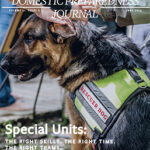- Articles, Communication & Interoperability, Critical Infrastructure, Emergency Management, Emergency Medical Services, Fire, Hospitals, Public Health, Science & Technology
- Joseph Cahill
The use of social media has become so common that many people could not think of going through the day without using one or more of them for at least a few minutes – or several hours. Social media have in fact been used not only to keep citizens better informed about almost every topic imaginable but also to organize small groups, major cities, and entire nations on matters as diverse as family picnics, major weather events, and the overthrow of dictators. In short, social media are the new landscape of information, and emergency managers would be well advised to make better use of them.
Using social media effectively, however, should not start on the day of a major incident. The nature of social media is to cultivate a following that allows the user to communicate with his or her personal as well as professional connections. By creating a special brand for their agencies, therefore, public information officers (PIOs) and emergency managers alike can build a following that, on the day of an incident, enables information to be quickly pushed out to the public in a quick and frequently successful attempt to influence the actions and reactions of scores of individual citizens.
The staff assigned to carry out this task have increased responsibility because they are now speaking for their entire agency – and everything they say or write will reflect directly on that agency. As with any other type of communications to the public, staff must ensure that the information they provide about an incident is as accurate as possible. Of course, they must also stay on message.
The Dark Side of the New Force
Many users do not realize it, but there also is a darker side to the ability to instantly share one’s own thoughts, witty comments, and other observations with the entire world. The Fire Department of New York (FDNY), to cite but one example, has been much in the news recently about certain posts made by FDNY members on certain social media outlets.
Although people have always “blown off steam” in various ways – complaining about their frustrations, for example – the big difference today is that social media posts are very public and long-lasting. Unfortunately, many users seem to have the illusion that social-media posts are private, and that unjustified assumption often leads to at least some people posting comments that they would never actually say aloud in the work environment.
The first amendment of the U.S. Constitution guarantees freedom of speech to all citizens, and even unpleasant speech is protected. For that reason alone, although public agencies and private businesses alike want to maintain their image, employers should check with legal counsel prior to announcing or agreeing with any proposed policy that may be perceived as infringing on the freedom of speech of their own employees.
A Uniform Policy Worth Considering
There is another legal reality that should be taken into consideration in such situations. Namely, that the posts may display the writer’s actual feelings or the writer may simply be conforming to a group dynamic – but employers can still require staff to display professional behavior when representing the agency. Legal counsel should be consulted, therefore, to help determine what specific policies, current or proposed, meet the legal definition of “representing the agency.” One example that might be cited: Listing an employer in a social media profile may constitute representing the agency in much the same way that wearing a uniform off duty does.
Like private businesses, public agencies have the responsibility both to protect their own proprietary information and to ensure that confidential information – e.g., protected medical information as defined under the Health Insurance Portability and Accountability Act (HIPAA). Employers also have a right to expect their employees to be actually working while “on the clock” – and for that reason alone the company should be able to put in place the reasonable rules and/or technology controls needed to ensure an honest day’s work from their employees.
Considered collectively, social media are an important and powerful new tool that today: (a) is changing how, when, and how much the world communicates; (b) is used by a steadily growing number of emergency agencies, businesses, and everyday citizens; and (c) requires the use of legal and the reasonable control of any proprietary information that is broadcast.
Following is a brief summary of some but by no means all of the more important “rules of the road” that official (or unofficial) spokespersons should remember when using social media:
- Nothing should be said or posted unless it is appropriate for the world to hear or read.
- The internet is forever.
- Information that is passed on should be fact checked, with authoritative sources – and the more a statement conforms to and/or reflects one’s own personal beliefs or sympathies, the more thoroughly it should be vetted.
- When at work, staff should be actually working – not posting to social media sites (unless that is one of their official duties).
- Bosses and/or co-workers may want to keep professional relationships professional and have the right to turn down “friend requests.”
- There is a reasonable expectation on the part of employers that any information that staff members have access to as part of their jobs will be held confidential – and may be required by some statutes.
- When representing an agency, what is done and said reflects on that agency in much the same way staff represent their agencies when they travel to and from work in uniform.
For additional training on social media for emergency managers, planners, responders, and receivers, the Federal Emergency Management Agency offers an online course (IS-42: Social Media in Emergency Management). Social media can, with proper training, serve as a valuable outlet for reaching the public in times of emergency.

Joseph Cahill
Joseph Cahill is the director of medicolegal investigations for the Massachusetts Office of the Chief Medical Examiner. He previously served as exercise and training coordinator for the Massachusetts Department of Public Health and as emergency planner in the Westchester County (N.Y.) Office of Emergency Management. He also served for five years as citywide advanced life support (ALS) coordinator for the FDNY – Bureau of EMS. Before that, he was the department’s Division 6 ALS coordinator, covering the South Bronx and Harlem. He also served on the faculty of the Westchester County Community College’s paramedic program and has been a frequent guest lecturer for the U.S. Secret Service, the FDNY EMS Academy, and Montefiore Hospital.
- Joseph Cahillhttps://domprep.com/author/joseph-cahill
- Joseph Cahillhttps://domprep.com/author/joseph-cahill
- Joseph Cahillhttps://domprep.com/author/joseph-cahill
- Joseph Cahillhttps://domprep.com/author/joseph-cahill






